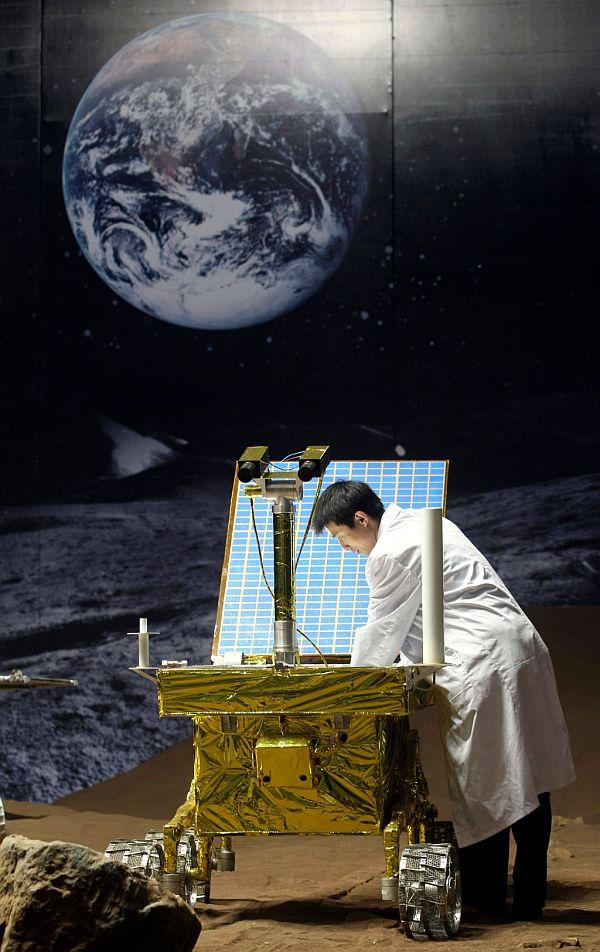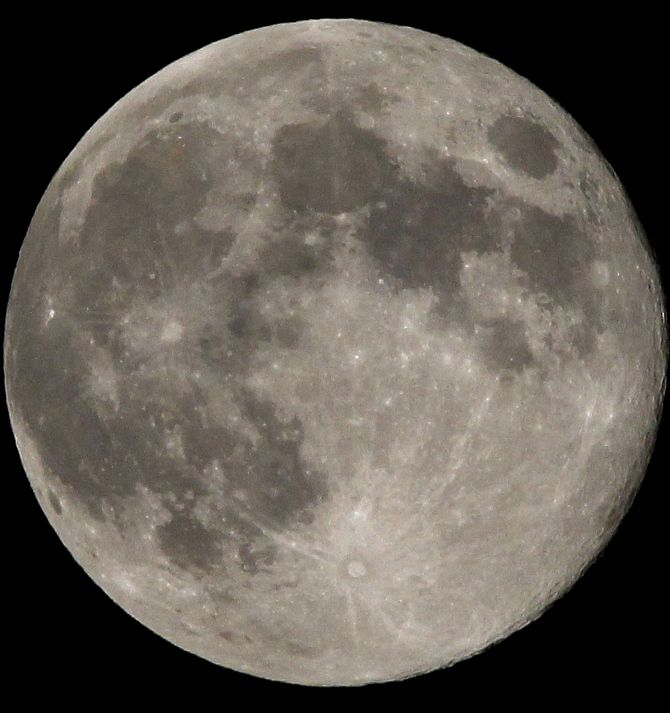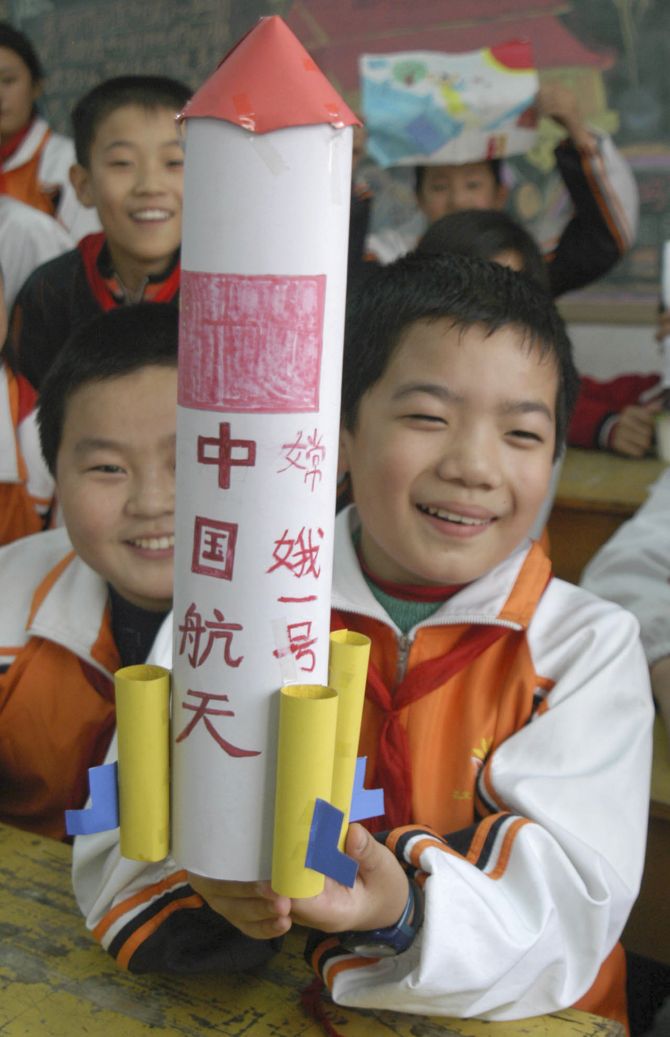 | « Back to article | Print this article |
China aims for the moon
China on Tuesday said it will send its first-ever unmanned space probe to the Moon early next month to explore the lunar surface, a major milestone that would also be the Communist giant's maiden soft-landing on an extra-terrestrial celestial body.
"China is scheduled to launch Chang'e-3 lunar probe in December," a spokesman with State Administration of Science, Technology and Industry for National Defence said.
The lunar probe will land on the Moon in mid-December if everything is successful, state-run Xinhua news agency quoted SASTIND spokesman Wu Zhijian as saying.
Chang'e-3, consisting of a lander and a Moon rover, will mark the first time for a Chinese spacecraft to soft-land on the surface of an extra-terrestrial body.
Click NEXT to read further...
China aims for the moon
The Moon rover was named "Yutu", or jade rabbit, following an online poll seeking name proposals from the Chinese worldwide.
In Chinese folklore, Yutu is the white pet rabbit of Chang'e, who has been worshipped as the moon goddess in China for thousands of years and whose name is used for the country's lunar probe progress.
The Chang'e-3 mission is the second phase of China's lunar programme, which includes orbiting, landing and returning to Earth, the Xinhua report said.
China had launched its Chang'e-1 orbiter in 2007 and Chang'e-2 in 2010.
Click NEXT to read further...
China aims for the moon
The first probe retrieved a great deal of scientific data and a complete map of the moon, while the second created a full high-resolution map of the moon and a high-definition image of Sinus Iridium, a lunar landmark.
Chang'e-2 which was launched on October 1, 2010, orbited the moon to finish a more extensive probe than its predecessor Chang'e-1.
After finishing its lunar objectives in June, 2011, Chang'e-2 left its lunar orbit for an extended mission to the Earth-Sun L2 Lagrangian point.
Besides continuing its lunar programme, China space programme is focussing on building a permanent space station like Mir, the Russian space station being used by US.
China has flown to manned missions to link up with an orbiting module to master the manual and automatic space docking technologies.
Click NEXT to read further...
China aims for the moon
The space mission is a source of huge national pride for the communist nation, reflecting its ambition to be among the world's leading powers.
India's Mars mission Mangalyan, which was launched this month has evoked considerable interest in China as it enabled New Delhi to steal march over Beijing specially with a modest budget of USD 73 million.
If successful, Manglayan will make India the fourth country after US, Russia and EU to send probes to Mars. Chinese and Japanese efforts to send probes have not succeeded.
Japan's Nozomi orbiter failed and China's Yinghuo-1 with its Russian carrier was lost in space last year.
TOP photo features you missed last week
Click on MORE to see another PHOTO features...




